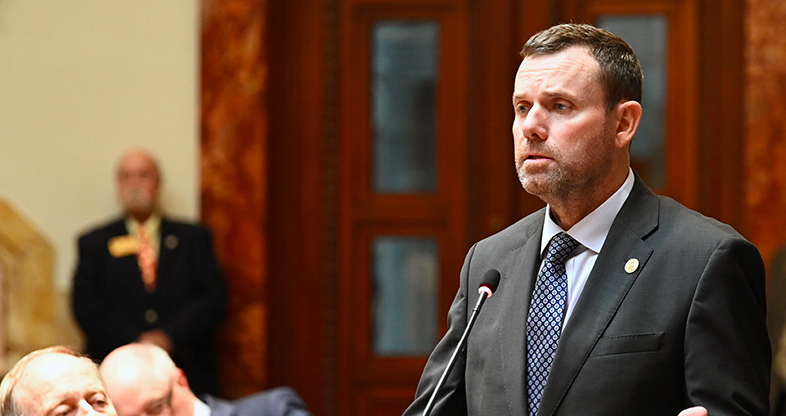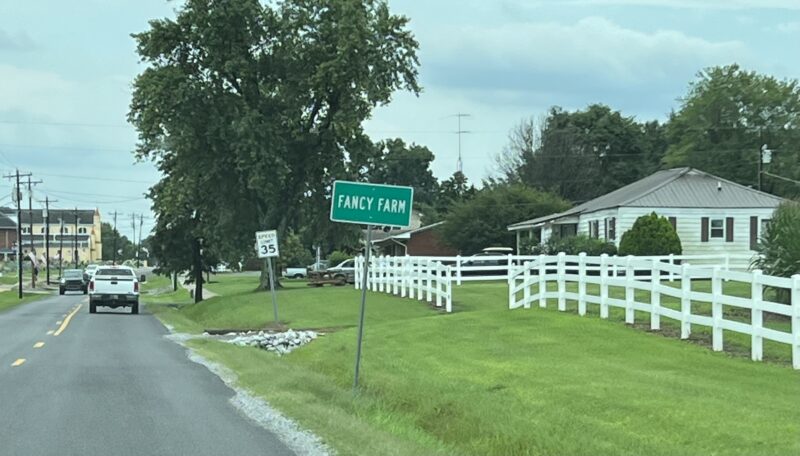Legislation that would set up a regulatory authority for medical marijuana and the qualifying health conditions to receive the drug has cleared a state Senate committee. The issue has been a hot-button topic in this year’s race for governor.
Senate Bill 47, sponsored by Sen. Steve West, R-Paris, has cleared the Senate Standing Committee of Licensing and Occupations.
“A constituent approached me several years ago with a personal story regarding medicinal marijuana, piquing my interest and beginning the process of crafting this piece of legislation,” West said. “I am a proponent of this issue, not for personal reasons, but because through extensive research, I genuinely feel that medical cannabis is inherently safe. On this issue, I believe Kentuckians deserve as many safe options for their medical care and treatment as possible.”
The following diagnoses are covered under SB 47:
· Any type or form of cancer regardless of the stage.
· Chronic, severe, intractable, or debilitating pain.
· Epilepsy or any other intractable seizure disorder.
· Multiple sclerosis, muscle spasms, or spasticity.
· Chronic nausea or cyclical vomiting syndrome that has proven resistant to other conventional medical treatments.
· Post-traumatic stress disorder.
· Any other medical condition or disease for which the Kentucky Center for Cannabis established in KRS 164.983, or its successor, determines that sufficient scientific data and evidence exists to demonstrate that an individual diagnosed with that condition or disease is likely to receive medical, therapeutic, or palliative benefits from the use of medicinal cannabis.
The legislation would also set up the regulatory authority through the Cabinet for Health and Family Services to oversee all aspects of medicinal legalization. It establishes guidelines for law enforcement, requiring that medical marijuana be transported in an opaque container with labels and a clearly marked dosage. SB 47 establishes rights for employers, civil rights for parents and custodians of minors, and parameters involving rights within education and how a patient must obtain eligibility and acquire a medical card.
The bill also sets standards for setting up a dispensary, applying for a business license, and obtaining the product for distribution. Medicinal marijuana will not be taxed under the bill, but there will be fees levied on producers and dispensaries. Kentucky farmers will also benefit, as all medical marijuana sold in the commonwealth, must be grown in the commonwealth.
“SB 47 is the product of a lot of research, many discussions and carefully considering all sides of the issue,” Senate President Robert Stivers said. “The legislative process is at work. While I have expressed my concerns with the bill, I recognize the will of many Kentuckians to have this as a medicinal treatment option and the legislative process will play out as it was intended.”
With the Senate Licensing and Occupations Committee’s approval, SB 47 can now be considered by the full Senate. If enacted, the measure would take effect on January 1, 2025.
Gov. Andy Beshear, D-Kentucky, has called for legalization, issuing an executive order at the end of 2022 to narrowly allow Kentuckians with medical needs the ability to possess and use medical marijuana in Kentucky in 2023 as long as the marijuana is legally purchased in another state (and they keep the receipt), the amount purchased does not exceed 8 ounces, and the person has a certificate from a licensed health care provider that the individual suffers from one of 21 qualifying conditions.
Republican candidate for governor Ryan Quarles, the state Agriculture Commissioner, announced support for medical marijuana at the end of February. Somerset Mayor Alan Keck, who is also running in the GOP primary supports the legislation, and recently Attorney General Daniel Cameron told Spectrum News 1 that he is open to the idea if he were elected governor.
Kentucky Lawmakers have the rest of the week to pass bills before a two-week veto recess. The final day of the legislative session is March 30.




 Login
Login  Must include at least 8 charaters
Must include at least 8 charaters


